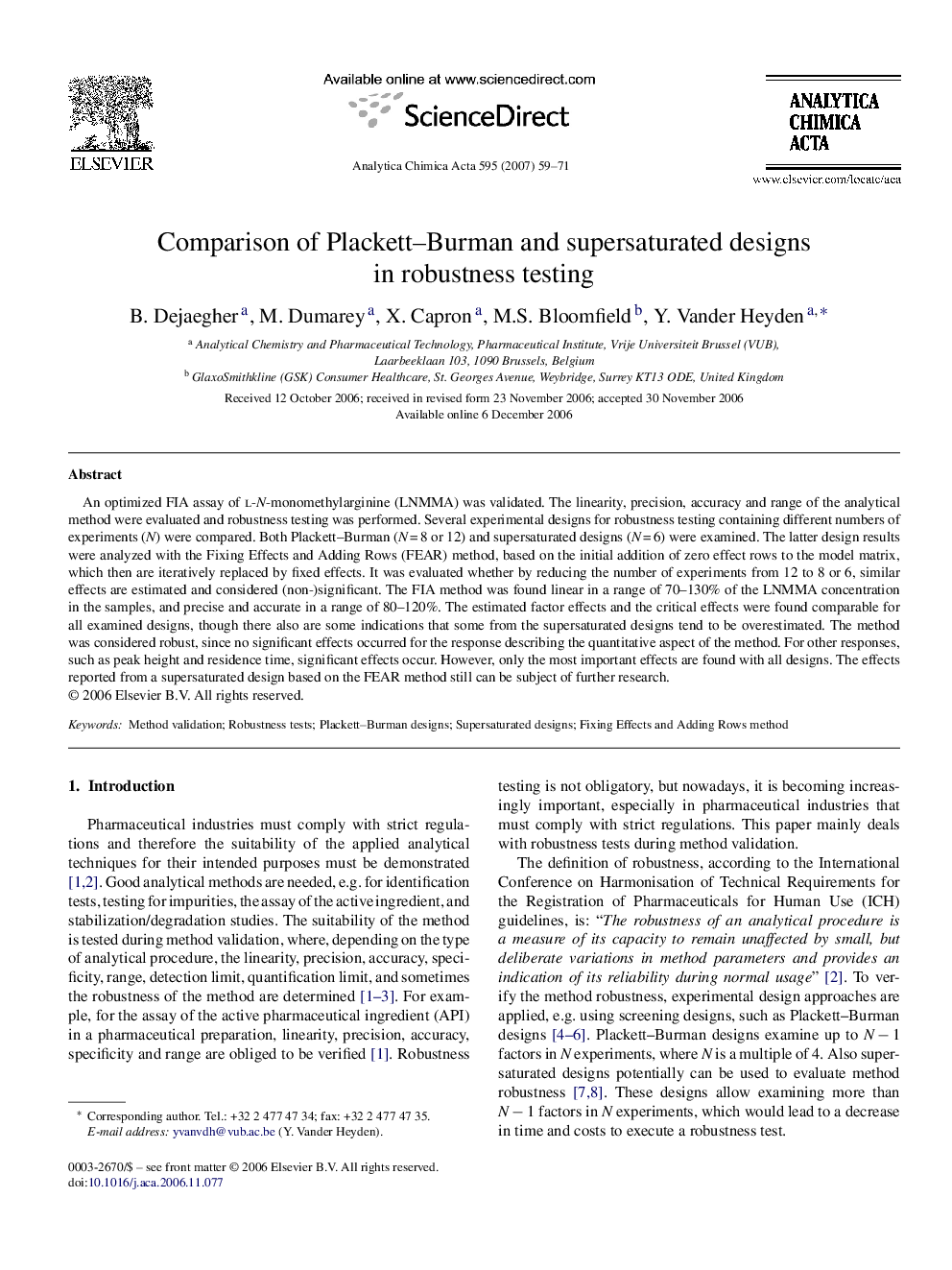| کد مقاله | کد نشریه | سال انتشار | مقاله انگلیسی | نسخه تمام متن |
|---|---|---|---|---|
| 1170429 | 1491173 | 2007 | 13 صفحه PDF | دانلود رایگان |

An optimized FIA assay of l-N-monomethylarginine (LNMMA) was validated. The linearity, precision, accuracy and range of the analytical method were evaluated and robustness testing was performed. Several experimental designs for robustness testing containing different numbers of experiments (N) were compared. Both Plackett–Burman (N = 8 or 12) and supersaturated designs (N = 6) were examined. The latter design results were analyzed with the Fixing Effects and Adding Rows (FEAR) method, based on the initial addition of zero effect rows to the model matrix, which then are iteratively replaced by fixed effects. It was evaluated whether by reducing the number of experiments from 12 to 8 or 6, similar effects are estimated and considered (non-)significant. The FIA method was found linear in a range of 70–130% of the LNMMA concentration in the samples, and precise and accurate in a range of 80–120%. The estimated factor effects and the critical effects were found comparable for all examined designs, though there also are some indications that some from the supersaturated designs tend to be overestimated. The method was considered robust, since no significant effects occurred for the response describing the quantitative aspect of the method. For other responses, such as peak height and residence time, significant effects occur. However, only the most important effects are found with all designs. The effects reported from a supersaturated design based on the FEAR method still can be subject of further research.
Journal: Analytica Chimica Acta - Volume 595, Issues 1–2, 9 July 2007, Pages 59–71